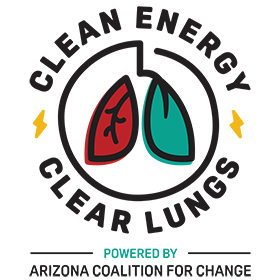Last Saturday the US Department of Homeland Security Secretary Kirstjen Nielsen proposed new rules that (when adopted) will consider a much wider range of public benefits when they evaluate applications for an immigration change of status or extension of stay request.
DHS already uses information about whether applicants for legal permanent residency receive Temporary Assistance for Needy Families and Supplemental Security Income (SSI) when they evaluate applications. After these new rules are adopted, they’ll also consider whether applicants receive Medicaid (AHCCCS), Medicare Part D Low Income Subsidy, the Supplemental Nutrition Assistance Program (food stamps), and Section 8 Housing program. Once adopted, applicants that receive any of these benefits will be far less likely to be approved for a status change or stay extension. I didn’t see any exemptions for children- so presumably benefits used by any noncitizen family member including kids would count.
Here are some take-aways from the draft:
-
This is an issue of legal immigration- unauthorized migrants are largely ineligible for public assistance;
-
The use of public benefits by citizen children would not be considered a public charge;
-
This does not directly impact green card holders (the public charge test is not applied to green card holders applying for citizenship);
-
The proposed rule is not retroactive – meaning the public benefits received before the rule is final will not be counted as a public charge; and
-
The proposed rules would not apply to refugees because existing statute prevents DHS from using the criteria for refugees.
A few months ago, DHS issued a discussion draft of the rule change that would have also included programs like Women Infant and Children (WIC) program, school lunch programs, subsidized marketplace health insurance and even participation in the Vaccines for Children program.
Even though the new draft doesn’t include vaccinations (VFC), WIC and marketplace insurance- many families will believe that the regulations do include these benefits and will elect not to use these important safety net benefits- as doing so will risk their immigration status. As a result, families will have a more difficult time improving the health status of their families.
The proposed new rules are 447 pages long- but a key place to look are pages 94-100 (that’s where the outline the new list of benefits that they intend to include). The official proposal will be published in the Federal Register in a few weeks. Once it’s officially published, the public will be able to comment on the proposed rule for 60 days. The official version in the Federal Register will contain information about how to submit comments. I’ll keep my eye out for that.
History of Considering Public Benefits
The term “public charge” as it relates to admitting immigrants has a long history in immigration law, appearing at least as far back as the Immigration Act of 1882. In the 1800s and early 1900s “public charge: was the most common ground for refusing admission at U.S.
In 1999, the INS (DHS didn’t exist yet) issued Rules to “address the public’s concerns about immigrant fears of accepting public benefits for which they remained eligible, specifically medical care, children’s immunizations, basic nutrition and treatment of medical conditions that may jeopardize public health.” Here’s that final Rule from 1999, which didn’t include Medicaid our housing benefits in the public charge definition.

